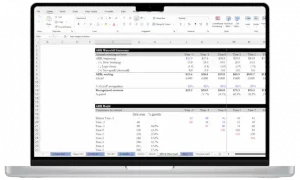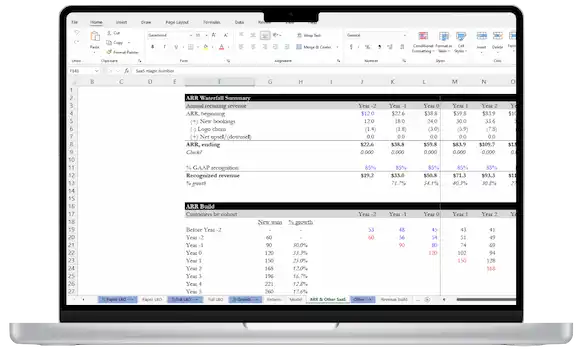If you’re thinking of starting your career in private equity, you’ve come to the right place.
I’ll take you through what you can expect regarding career progression and what it takes to move up the private equity ladder.
Let’s get started.
Private Equity Skills and Requirements
Most newcomers to the private equity game come from one of the following paths:
- Investment banking analysts
- Directly from another private equity firm
- MBA graduates with at least two years of experience in finance
If you don’t have something similar to this, the chances of getting into a well-known private equity firm are pretty low.
The competition within private equity is fierce, and if you don’t have the basics, you don’t stand a chance unless you get super lucky by having or developing “an in” at a firm.
The thing is, private equity firms are looking for people that can hit the ground running. There isn’t time to explain the basics. The core skills required include:
- Financial modeling
- Investment judgement
- Communication — written and verbal
- Financial due diligence process
Private Equity Career Hierarchy
In general, there is a hierarchy in private equity that the majority follow at the start of the private equity career path.
This hierarchy is:
- Analyst
- Associate
- Senior Associate
- Vice President
- Principal
- Managing Director (or Partner)
Private Equity Analyst
Age: 22-24
A private equity analyst is usually hired directly out of undergrad. Usually the analyst has interned successfully at the firm during school; however, this is not always a requirement.
To start, most analysts spend most of their time analyzing potential investments and reaching out (cold calling) targets.
In deal work, you might be responsible for a small area of a deal rather than its entirety.
So much goes into private equity, so this is an excellent way to start getting an idea of all the moving parts of a deal.
Private Equity Associate
Age: 24-26
A private equity associate usually has two to four years of working experience within consulting firms, investment banking, or other private equity firms.
Moving up a spot, a private equity associate will be responsible for financial modeling and handling most diligence analyses. This means they are more hands-on with the actual deal.
At some firms associates also oversee the analyst’s work.
Private Equity Associate vs. Analyst
A private equity analyst is usually primarily tasked with reaching out to companies (called “sourcing”); however, they can also start to assist with certain deal-related tasks.
Meanwhile, the private equity associate is the primary executer of all deal-related diligence, including the financial model.
The private equity associate will look over any diligence work done by analysts and add more detail to prepare it for evaluation. Once approved, the associate will hand the investment over to higher-up private equity professionals.
As an analyst, you have to be prepared to hand your work off and have someone else take the credit. It’s par for the course in private equity; everyone goes through it.
Private Equity Senior Associate
Age: 26-32
Senior associates have a more well-rounded position in the private equity industry. They’re involved in most things within the firm that has to do with deals.
They might communicate with partners, perform financial valuations, research investment opportunities, and assist with portfolio company management.
They’ll likely work alongside partners and other senior folks within the firm.
Generally, this role is only offered to associates who’ve successfully completed 2 years as an associate at the firm. At most places, it’s considered the first “career track” position.

- 66 lessons
- 12+ video hours
- Excels & templates
Private Equity Vice President
Age: 30-35
Vice Presidents are essentially responsible for managing deals in general. They work directly with clients to build and maintain relationships (to win deals), but they also oversee and manage all work by associates and analysts.
They travel quite often to meet with clients face-to-face at this stage. This is a vital part of initial contact to ensure transparency and trust.
The VP will also act as a mentor to the senior associates, associates, and analysts.
Private Equity Principal, Director, or Managing Director
Age: 33-40+
At the senior level, a private equity director, principal, or managing director is directly involved with client negotiations. It’s usually up to these senior folks to ultimately win and close deals.
After closing a deal, these roles work extensively with portfolio companies to ensure the deal will prove successful.
These roles are also responsible for setting the overall investment strategy within a firm, which is a key undertaking.
A managing director (MD) is the most senior position at a private equity firm.
An MD is responsible for basically the entire firm. While they may not be involved in the everyday workings of the firm, they remain accountable for deals and decisions.
Private Equity Careers Pros and Cons
Like all things in life, there are advantages and disadvantages to a career in private equity.
Pros:
- Fantastic compensation and bonuses
- High prestige
- Tons of development and learning
- Wide variety of career opportunities if you ever want to leave
Cons:
- Tough industry to get into
- Long hours
- Career progression can be slow as firms get more crowded
FAQ
Is it difficult to get started in private equity?
Yes, getting your foot in the door at a good firm is challenging. But it’s not impossible. You need the right background and experience, which can take a lot of hard work to attain. However, PE firms are expanding, and with lots of hard work and the right networking strategy it’s possible to get into private equity
What should I do to prepare for a role in private equity?
It highly depends on what level you’re already at. Check out my master guide on how to get into private equity.
Is a career in private equity stressful?
Yes, it’s one of the main drawbacks to the job. In my experience, private equity can be extremely demanding. If you aren’t prepared to put a load of work in, this isn’t the job for you.


 Break Into Growth Equity
Break Into Growth Equity

